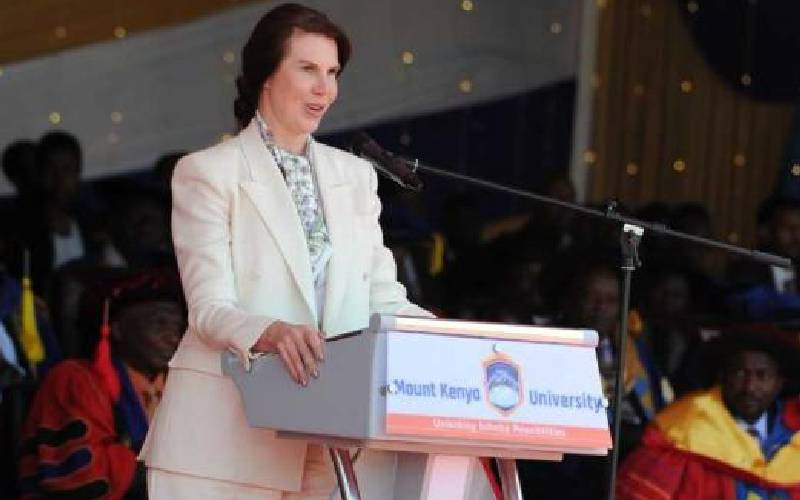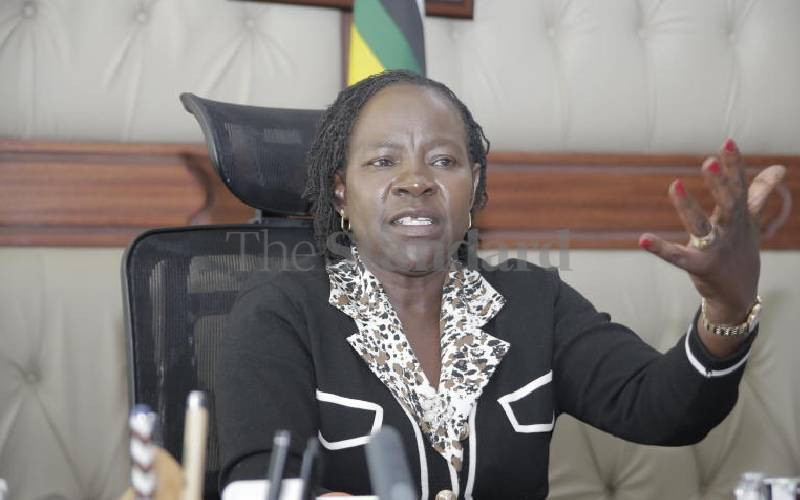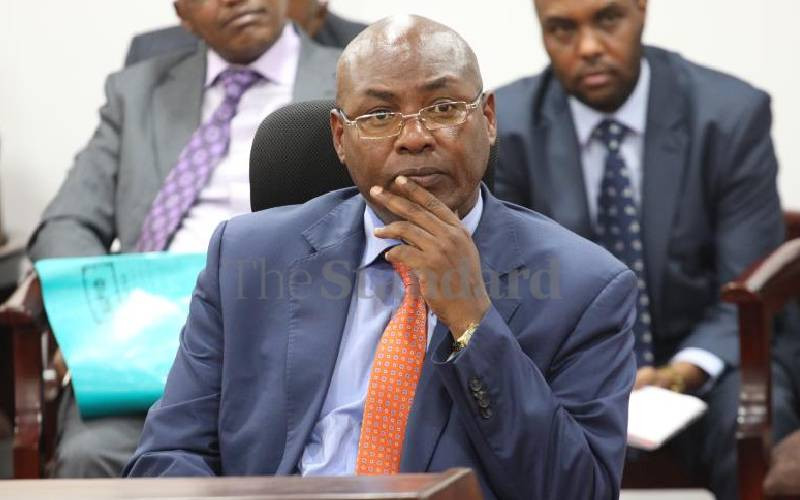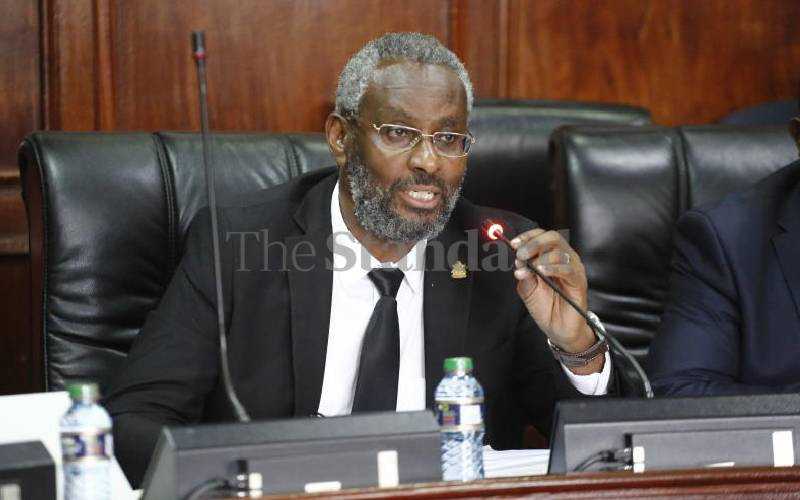
Shocking revelations have emerged in how ministries and government agencies have concealed staff, employed, and promoted based on fake certificates.
An audit by the Public Service Commission (PSC) reveals that more than 700 staff with fake academic papers employed in Ministries, Departments, Agencies and State Corporations (MDAs), are yet to be punished.
This was even after they were flagged to have forged their academic qualification for gainful employment.
Of the 787 employees whose academic papers from universities and tertiary institutions were authenticated as fake, only 63 have so far been dismissed while 23 other chose to resign.
Only one staff has been charged in court. This means that some 724 employees with fake certificates are still drawing salaries and illegally draining public coffers.
On Wednesday, the PSC raised concern over inaction against some of the flagged cases by various institutions.
"Most MDAs with verified cases of forged or fraudulently obtained certificates have instituted disciplinary action including termination of service for the affected officers, but there was also notable inaction by some MDAs without valid reasons," said PSC chairperson Anthony Mwaniki.
The PSC report further shows that out of the 53,599 cases referred to Kenya National Examinations Council (Knec) by 91 public institutions for authentication, some 1,280 were forged.
This means that either their KCPE or KCSE certificates were fake.
The details are contained in a document titled "Report on the Authentication Exercise of Academic and Professional Certificates in the Public Service," released on February 13.
The report was presented to the Ethics and Anti-Corruption Commission and the Directorate of Criminal Investigation.
PSC has called for legal action against persons in possession of fake papers.
Even though some institutions allowed the safe exit of staff found culpable of faking their academic credentials through resignation, PSC termed the exercise illegal and called for stern action.
"Some public institutions have allowed the offenders to resign or proceed on early retirement against section 78 of the Public Service Commission Act, 2017 and Regulations 69 of Public Service Commission Regulations, 2020," Mwaniki said.
PSC said the law stipulates that the Commission or any other appointing authority should not allow exits from the public service, on account of fraud or conspiracy.
It also warns against exits aimed at avoiding anticipated or ongoing disciplinary cases; or where exit is aimed at avoiding outstanding liabilities owed by the officer to the public body.
Finer details of the PSC report, however, reveal that the Ministry of Interior topped the list with the highest number of employees holding fake credentials, with a staggering 103 forged certificates identified.
The State Department of Internal Security and National Administration within the Ministry held the most significant number of forged documents; 78 were forged Knec certificates, 23 were diplomas, and two were forged degrees from local universities.
This raises concerns about the integrity and security within this crucial department.
Kenya Railways Service followed closely with 83 employees found to possess fake certificates, while the Geothermal Development Corporation identified 63 such cases.
Interestingly, 47 individuals in the latter organisation chose to resign upon facing dismissal while another 16 chose to resign.
At the Rural Electrification and Renewable Energy Corporation, 16 certificates were flagged as fake but the staff have since left the company with 11 sacked and five opting to resign.
Another four employees found to have fake papers were laid off from the Ewaso Ngiro North Development Authority
A former officer at the Kenya Forest Research Institute was charged in court for holding a fake Master's degree. The case is ongoing at the Kikuyu Law Courts.
At the Kenya Medical Practitioners and Dentist Council a deputy director of strategy, research and quality assurance was dismissed in December 2022 after she was found to have a fake university certificate.
At the Independent Electoral and Boundaries Commission, two employees opted to resign out of 13 staff found in possession of fake academic papers.
The report is however silent on the fate of the 11 others.
Other institutions where staff were found to have forged certificates include the Kenya Forest Service where 38 certificates were fake, Moi Teaching and Referral Hospital 28 staff were found to have forged certificates, National Construction Authority, 22 certificates were found not to be authentic, Kenya Plant Health Inspectorate Service had 11 staff with fake certificates, Nema had 10 cases of academic papers forgery.
What is even more shocking is the presence of forged certificates in institutions of higher learning whose mandate is to verify the documents.
In Kibabii University, out of the 432 academic papers that were authenticated, 12 were found to be fake.
Out of this nine employees in possession of fake KCSE certificates opted to resign; one forgery was an undergraduate degree in purchase and supplies management and a forged KCPE certificate.
Rongo University, 12 employees were found to have fake certificates from Knec.
According to the PSC, substantial cases of forged academic and professional certificates have been used for the award of appointments, promotions or re-designation in the public service.
 The Standard Group Plc is a multi-media organization with investments in media platforms spanning newspaper print
operations, television, radio broadcasting, digital and online services. The Standard Group is recognized as a
leading multi-media house in Kenya with a key influence in matters of national and international interest.
The Standard Group Plc is a multi-media organization with investments in media platforms spanning newspaper print
operations, television, radio broadcasting, digital and online services. The Standard Group is recognized as a
leading multi-media house in Kenya with a key influence in matters of national and international interest.











